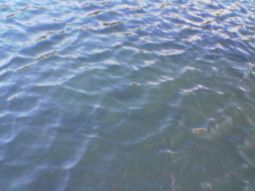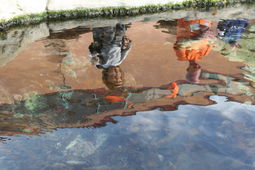Fresh water
2007 Schools Wikipedia Selection. Related subjects: Geology and geophysics
Fresh water is water with less than 0.5 parts per thousand dissolved salts. Fresh water may be found in lakes, rivers, and bodies of groundwater. The ultimate source of fresh water is rain (or, to be more precise, the precipitation of atmospheric water vapor, see also hydrologic cycle).
| Water salinity based on dissolved salts in parts per thousand (‰) | |||
|---|---|---|---|
| Fresh water | Brackish water | Saline water | Brine |
| < 0.5 ‰ | 0.5 - 30 ‰ | 30 - 50 ‰ | > 50 ‰ |
Water distribution
Access to unpolluted fresh water is a critical issue for the survival of many species, including humans, who must drink fresh water in order to survive. However, only 3% of water on the Earth is fresh water, and about two-thirds of this is frozen in glaciers and polar ice caps. Most of the rest is groundwater, but 0.3% is surface water. Fresh water lakes contain seven-eighths of fresh surface water. Swamps have most of the rest, but a little is in rivers. The atmosphere only contains 0.04% of fresh water (see water resources).
Aquatic organisms
Fresh water creates a hypotonic environment for aquatic organisms. This is problematic for some organisms, whose cell walls will burst if excess water is not excreted. Some protists accomplish this using contractile vacuoles, while freshwater fish excrete excess water via the kidney. Although most aquatic organisms have a limited ability to regulate their osmotic balance and therefore can only live within a narrow range of salinity, some fish have the ability to migrate between fresh water and seawater.

